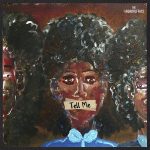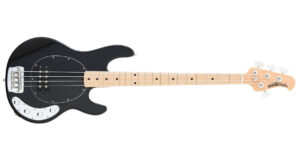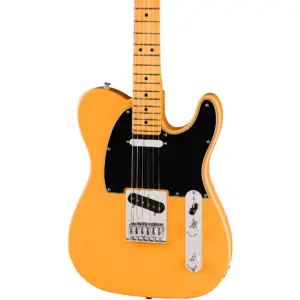Soliloquy (Komorebi): I confess that I am an overeager fan of Komorebi‘s sound. She directs electronic notes to incredibly fragile places. As in her earlier work, Soliloquy treads lightly but surely. Every track is dainty and mellifluous without compromising an inch of character. Tarana quite obviously plays with her sounds, not taking them too seriously or expecting them to adhere to the demands of a distinct message.
Take ‘Little One’. It features Warren Mendonsa, a man with an unmissable sound. It morphs to becomes entirely different, serving the nuance of its context. But, by no means, is it lost. It is simply a different breed. The same happens with Mohini Dey in Hurricane and Real. Komorebi’s work is compelling, and builds its own world with no effort. She manages to express a vast spectrum of human emotion with inspiring, and possibly misleading ease.
The songs are deliciously addictive. She does not pretend to cater to the thoughtless. Her musical sensibility is built on the cinematic mystery of shadowy whispers and batting eyelashes. Simultaneously, she does not shy away from creating a storm when the sentiment calls for it. Tarana is not just easygoing, she creates spontaneous enchantment.
Naked Soul (Madboy): Smooth is a strange word. Overused but underrated. It is used to describe whiskey, satin sheets, first dates, and any number of things that feel good and inspire no hassle. I feel almost guilty ascribing the word to Madboy‘s unhurried, laid-back, polished single. The delicious texture of the sound winks and whispers of Madboy’s departure from the breathless, almost harried danceability common to fans of Madboy/Mink. He switches to paying heed to retro influences, coating them in the basics of futurism, and playing around until a delectable balance is materialised.
The music video is impressive. I’m not sure I understand how the aggressive modulations of a skilled contortionist play into the repose-friendly and trip inducing signatures, but it is definitely a visual treat. It’s uncommon (unless you’re into Glass Animals’ Hazey) and unpredictable, both qualities easily attached to Imaad Shah. He abandons any overt Madboy/Mink sensibilities for his solo, tipping his hat to the Space Age frolics from the late 50’s and early 60’s. Despite the unhurried progression, Shah manages to infuse the irreverence that characterised his early acting days, as well as the boisterous wind of Madboy/Mink. He certainly does enough to hold his place in the quickly expanding oeuvre of good indie music in this country.
Tell Me (The Ragamuffins) : It is always deeply satisfying to discover artists that follow the rules only to play with them. The Ragamuffins, a Hyderabad-based indie outfit accomplish a half-serious relationship with established conventions of genre with their debut EP. Their music is testament to the long hours they inevitably put in while coming up with immediately memorable rhythms, and clearly confessional lyrics. I don’t mean to say that the band has been on the receiving end of every experience they song about (“The Gorkha” laments the plight of poor men who are slaughtered on the altar of warzones created by greed ), but that they have certainly invested themselves into the emotion generated by each issue. Their charm is upfront, and thankfully placed within riffs carefully carved by powerful sentiment and pleasurable sound.
Judas caught me in particular. Vocalist Pranati’s rendition of mockery, rage and betrayal is artfully done. She feels little need for bombast; her tonality is self-aware and does not stray into melodrama. Tell Me and Dropping Like Flies are rambunctious without any unnecessary showboating. You could “rock out” all you want, and be hard-pressed to find signs of flamboyance. The band is happy to focus on manipulating sound to foster an emotional response, rather than making some self-righteous point about how good they can be.
Naked on a Train (Vinay Kaushal): Contrary to obvious assumption, Kaushal’s debut album is not titled metaphorically, but a bit too literally. Inspired by the sight of a completely nude woman who boarded a train to escape chasing policemen, the album is substantially stimulating. Boredom is impossible while it plays. Neither is one overwhelmed, despite the considerable number of musicians and instruments that went into the making of this jazz-funk-classical soundsoup.
The album is elaborate, with very little restraint. However, Kaushal does not indulge in gauche display of skill, thankfully. He engages with multiple styles and genres, remaining careful to give each sound its unalterable place in the album’s cosmos. The title track is a combination of quirk and despondence, as fit the situation that provoked its composition. A Drop of Golden Sun is most easily conducive to joyous reception, given the movement of enamouring sitar strings. The dance between philosophically similar but texturally different notes is flaunted with open grace.
The artist’s personal chemistry with his composition fuels a sense of intimacy that is easily identifiable but often hard to define. Kaushal‘s work cultivates this quality. What may sound like commonplace arrangements (there are a few moments) are not wasted, as they quickly make way for the pivot that structures the song. A Tune for Peace – An Interlude and Sea’s Song are delightfully scattered, utilising few notes to build resonant images. Both songs advance with minimal embellishment, which makes them all the more admirable.
The album deserves to be streamed, and if you are interested in contributing to the fortification of an indie scene worth accolades in this country, bought.
Bol Na Ranti (Laxmi Bomb): Anger is mostly a useless and destructive emotion. You won’t find too many people recommending a daily dose of rage. For one thing, all the cortisol it generates is bad for whatever one can claim as one’s everyday sanity.
Unless, of course, you can direct the anger into an act of relevant and somewhat risqué creation. Mumbai-based Laxmi Bomb does exactly that with their third release and first full-length album. The theme materialises in a series of rants. Lucky (?) for them, and us, there is plenty to rant about. For example, the morphong of education by Catholicism, often for the worse (Donnie Bosco) or the exhausting, mindlessness of the rat race that unfolds on Mumbai’s metro lines each day (Tej Gaadi). Freak on Alisha derides the common Indian male fascination with white women, a phenomenon that has long been fodder for serious mockery. Suggagandhi bites into the recurrent and relevant matter of massive corruption in the country, but relates it to the monstrous levels of consumerism.
The band makes artful use of explicit wording (Run D makes my point). They toe the line of balance between using cuss words to get a reaction and to make a point of personal frustration. Bol Na Ranti does both, and not for a moment do you feel that they synth-laced groove-heavy tracks are in the danger of being inauthentic. They snigger with a deep depression, and highlight the many possibilities for hopelessness that seems to keep coming our way. The guys at Laxmi Bomb are angry, and no one can fault them for being so. Especially not when they manage to create good art with it.













